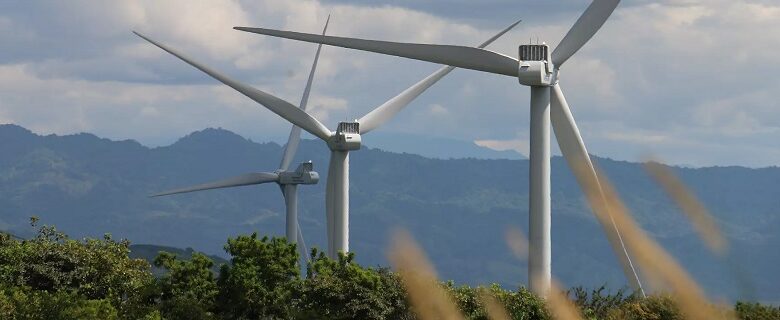Renewable Energy Technology: A Great Opportunity for India


Saikat Kumar Basu
Renewable energy technology refers to the harnessing of energy resources that are naturally replenished on a human timescale, such as sunlight, wind, rain, tides, waves, and geothermal heat. Sustainability in this context refers to the ability to meet the energy needs of the present without compromising the ability of future generations to meet their own needs. Renewable energy technologies contribute to sustainability by reducing greenhouse gas emissions, decreasing dependence on finite fossil fuels, and promoting energy independence and security.
The latest applications of sustainable renewable technologies span across various sectors as mentioned below. These applications demonstrate the diverse ways in which renewable energy technologies are being integrated into various sectors to address energy challenges and contribute to sustainability goals, such as Renewable Energy Generation: Advancements in solar, wind, hydro, and geothermal technologies are being applied to power homes, businesses, and even entire cities, reducing reliance on fossil fuels.
Energy Storage: Innovations in battery technologies, like lithium-ion and flow batteries, enable the storage of excess renewable energy for later use, enhancing grid stability and reliability.
Smart Grids: Integration of smart grid technologies allows for better management and distribution of renewable energy, optimizing efficiency and reducing waste.
Electric Vehicles (EVs): The rise of EVs powered by renewable energy sources is reducing emissions from transportation, contributing to cleaner air and lower carbon footprints.
Green Building Materials: Sustainable building materials, such as bamboo, recycled steel, and insulated concrete forms, are being utilized to construct energy-efficient and eco-friendly buildings.
Circular Economy: Adoption of circular economy principles promotes the reuse, recycling, and repurposing of materials, minimizing waste and environmental impact across various industries.
Precision Agriculture: Implementation of renewable-powered sensors and drones in agriculture enhances precision farming techniques, optimizing resource usage and reducing environmental impact.
Water Purification: Renewable energy-driven water purification systems, such as solar-powered desalination plants, are providing clean drinking water in water-stressed regions.
Carbon Capture and Utilization (CCU): Technologies for capturing and utilizing carbon emissions from industrial processes are being developed to mitigate greenhouse gas emissions and combat climate change.

Sustainable Fashion: Renewable materials like organic cotton, hemp, and recycled polyester are increasingly being used in the fashion industry, reducing the environmental footprint of clothing production.
Bio Sustainability refers to the capacity of biological systems, such as ecosystems or organisms, to maintain themselves over time without depleting resources or causing harm to the environment. It encompasses practices and technologies aimed at promoting ecological balance, preserving biodiversity, and ensuring the long-term viability of life on Earth. This concept often intersects with sustainability principles, focusing on biological processes and their interactions within ecosystems. Biosustainability has numerous applications across various fields, including:
Agriculture: Implementing sustainable farming practices to minimize environmental impact and preserve resources.
Biotechnology: Developing bio-based products, such as biofuels, bioplastics, and bio-based chemicals, which are renewable and environmentally friendly.
Medicine: Utilizing sustainable practices in healthcare facilities, promoting eco-friendly medical products, and researching environmentally safe pharmaceuticals.
Renewable Energy: Harnessing energy from renewable sources like solar, wind, and hydro, as well as exploring bioenergy options such as biofuels and biomass.
Conservation: Protecting and restoring ecosystems, preserving biodiversity, and promoting sustainable land and water management practices.
Waste Management: Implementing strategies for reducing, recycling, and repurposing waste, including composting organic materials and utilizing biodegradable packaging.
Urban Planning: Designing cities and communities with green spaces, sustainable transportation options, and energy-efficient infrastructure.
Education and Awareness: Educating individuals and communities about the importance of biosustainability and promoting sustainable lifestyles.
These applications aim to ensure the long-term health and well-being of both ecosystems and human societies by harmonizing economic, environmental, and social factors.
The International Conference on Renewable Energy Technologies and Bio Sustainability (ICRETBS 2024) at the prestigious Mohishadol College, Mohishadol, East Medinipur is important for multiple reasons:
Knowledge Sharing: It provides a platform for researchers, scientists, policymakers, and industry professionals to share the latest advancements, research findings, and best practices in renewable energy technologies and biosustainability.
Collaboration Opportunities: Conferences foster collaboration among different stakeholders, including academia, industry, and government agencies, which can lead to innovative solutions and partnerships.
Policy Development: Discussions at these conferences often inform policymakers about the latest developments in renewable energy technologies and biosustainability, influencing policy decisions and regulatory frameworks.
Global Perspective: As it’s an international conference, participants from various countries bring diverse perspectives and experiences, enriching discussions and promoting global cooperation towards sustainable development goals.
Networking: Conferences provide networking opportunities for professionals to connect, exchange ideas, and establish potential collaborations or partnerships for future research or projects.
Education and Awareness: These conferences also play a crucial role in educating the public and raising awareness about the importance of renewable energy and biosustainability in addressing climate change and environmental challenges.
Investing in renewable energy technologies and biosustainability can drive inclusive growth, protect natural resources, and secure a more sustainable and prosperous future for India. Renewable energy technologies and biosustainability can significantly change India’s future in several ways:
Energy Independence: By harnessing renewable energy sources such as solar, wind, and hydroelectric power, India can reduce its dependence on imported fossil fuels, enhancing its energy security and resilience.
Environmental Protection: Transitioning to renewable energy reduces greenhouse gas emissions and air pollution, improving public health and mitigating climate change impacts.
Rural Development: Implementing decentralized renewable energy solutions like solar mini-grids can provide electricity to remote rural areas, spurring economic development and improving living standards.
Job Creation: The renewable energy sector offers significant employment opportunities, from manufacturing and installation to maintenance and research, contributing to economic growth and social stability.
Biosustainability: Promoting sustainable agricultural practices, reforestation, and biodiversity conservation can enhance soil fertility, water quality, and ecosystem resilience, ensuring long-term food security and environmental sustainability.
Resilient Infrastructure: Integrating renewable energy with smart grid technologies and energy storage systems can enhance the resilience of India’s energy infrastructure, reducing the impact of natural disasters and improving grid reliability.
Global Leadership: By embracing renewable energy and biosustainability, India can position itself as a global leader in clean energy innovation and climate action, attracting investment and fostering international collaboration.
Photo credit: Saikat Kumar Basu
(This story has not been edited by News Mania staff and is published from a Media Release)






